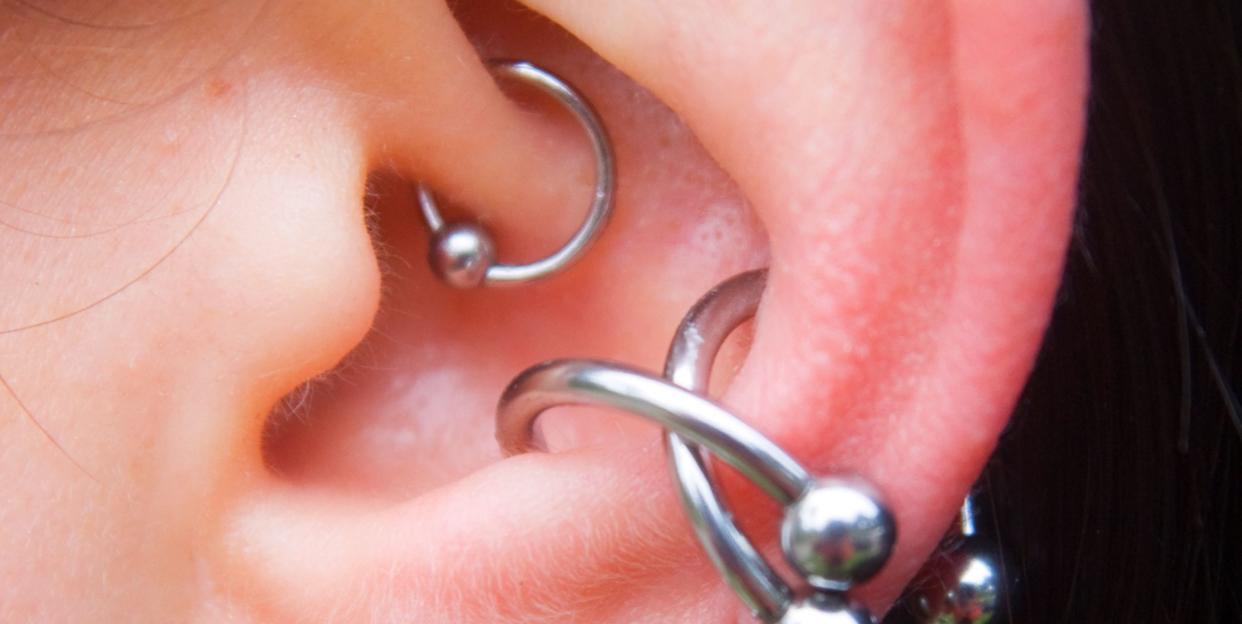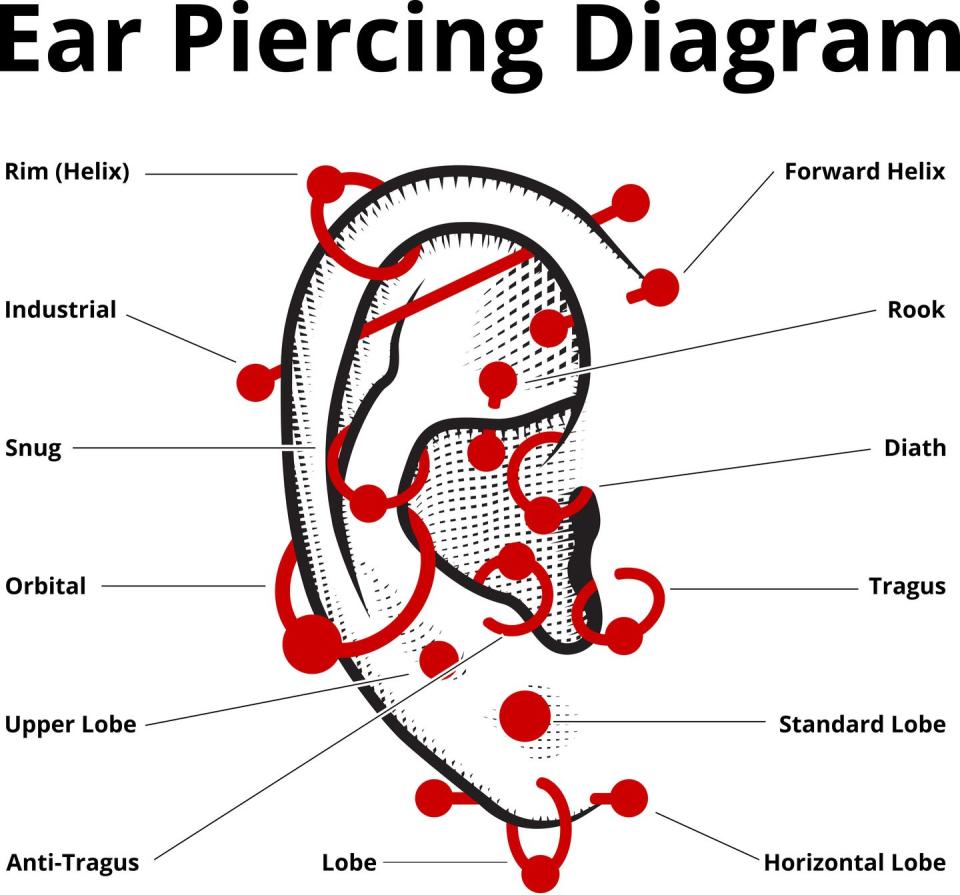Daith Piercings Have Long Been Rumored To Help With Migraine Symptoms

Living with migraine headaches means dealing with excruciating pain that can be unpredictable. And, if a migraine happens to surface, it doesn’t exactly care that you have to go to work or have fun happy hour plans with your buddies.
So, if you’re a regular migraine sufferer, it only makes sense that you’d look for a way—any way, really—to stop these headaches from happening in the first place. While there are medications you can take and lifestyle tweaks that can help, some people swear a daith piercing can keep migraines from coming on.
Of course, there are a lot of things people *say* will help your migraines, but it’s hard to tell what’s actually worth your time and effort. And, given that a daith piercing involves actually puncturing your skin, it’s understandable to have some questions before you hit up your nearest Claire’s in hopes of getting relief from crushing headaches.
Not surprisingly, there isn’t really robust research on this. “This approach is not studied rigorously,” says Amit Sachdev, MD, the director of the division of neuromuscular medicine at Michigan State University.
But is there something to the idea of using a daith piercing to help with migraine symptoms? Here’s what you need to know.
Meet the experts: Amit Sachdev, M.D., the director of the division of neuromuscular medicine at Michigan State University; Kiran F. Rajneesh MD, director of the Neurological Pain Division at The Ohio State University Wexner Medical Center.
What’s a daith piercing and what does it have to do with migraines?
Before we get into whether a daith piercing helps with migraines, it’s a good idea to go over what a daith piercing is.
A daith piercing is a piercing in the place where the cartilage ridge inside your outer ear (called the helix) ends above the opening to your ear canal, the Cleveland Clinic explains. It’s basically that little flap that extends from your face over your ear canal.

Seems random that piercing it would impact your migraines, right? But there’s a reason why this has been floated out there. In acupuncture, this area is targeted to relieve migraine headache pain, explains Kiran F. Rajneesh MD, director of the Neurological Pain Division at The Ohio State University Wexner Medical Center. “Trigger point injections can help migraine headaches and other kinds of pain,” he says. “Daith piercing may share a similar concept.”
The thought, according to people who swear by this, is that piercing the spot can permanently get rid of migraines.
Does it actually work?
In theory, it sounds like there might be something to getting a daith piercing to relieve migraine headaches, but experts say there's no definitive proof. Womp womp.
“There is no large randomized controlled study—the gold standard—to prove daith piercing helps," Dr. Rajneesh says.
Dr. Sachdev agrees. “Having a piercing placed in the daith region of the ear is not well established to influence burden of headache in patients with headache disorders,” he says. That doesn't mean it can't help—it's just that it hasn't been studied and proven to work.
"We know that non-Western styles of medicine, including acupuncture, are well developed and benefit many," Dr. Sachdev says. "It is possible that this style of piercing helps prevent migraines. However, I don't have enough study to know why."
Should I get a daith piercing?
There are a few things to consider before you get yourself pierced. “Daith piercing is higher risk compared to trigger point injections, since it is done on the cartilage—unlike muscles in trigger point injections,” Dr. Ragneesh says. (Reminder: Trigger point injections are another tool often used to treat migraines.) “Cartilage does not have blood vessels, so it is more prone to infection, death of tissue, and increased pain compared to muscles which have blood vessels.” Meaning, you could actually cause more issues for yourself vs. getting rid of migraine pain.
If you have migraines and you’re interested in having a daith piercing, Dr. Ragneesh recommends talking to your neurologist or primary care physician first, just to be safe. They also should be able to help go through more scientifically proven methods of preventing migraines and reducing your pain.
You Might Also Like
